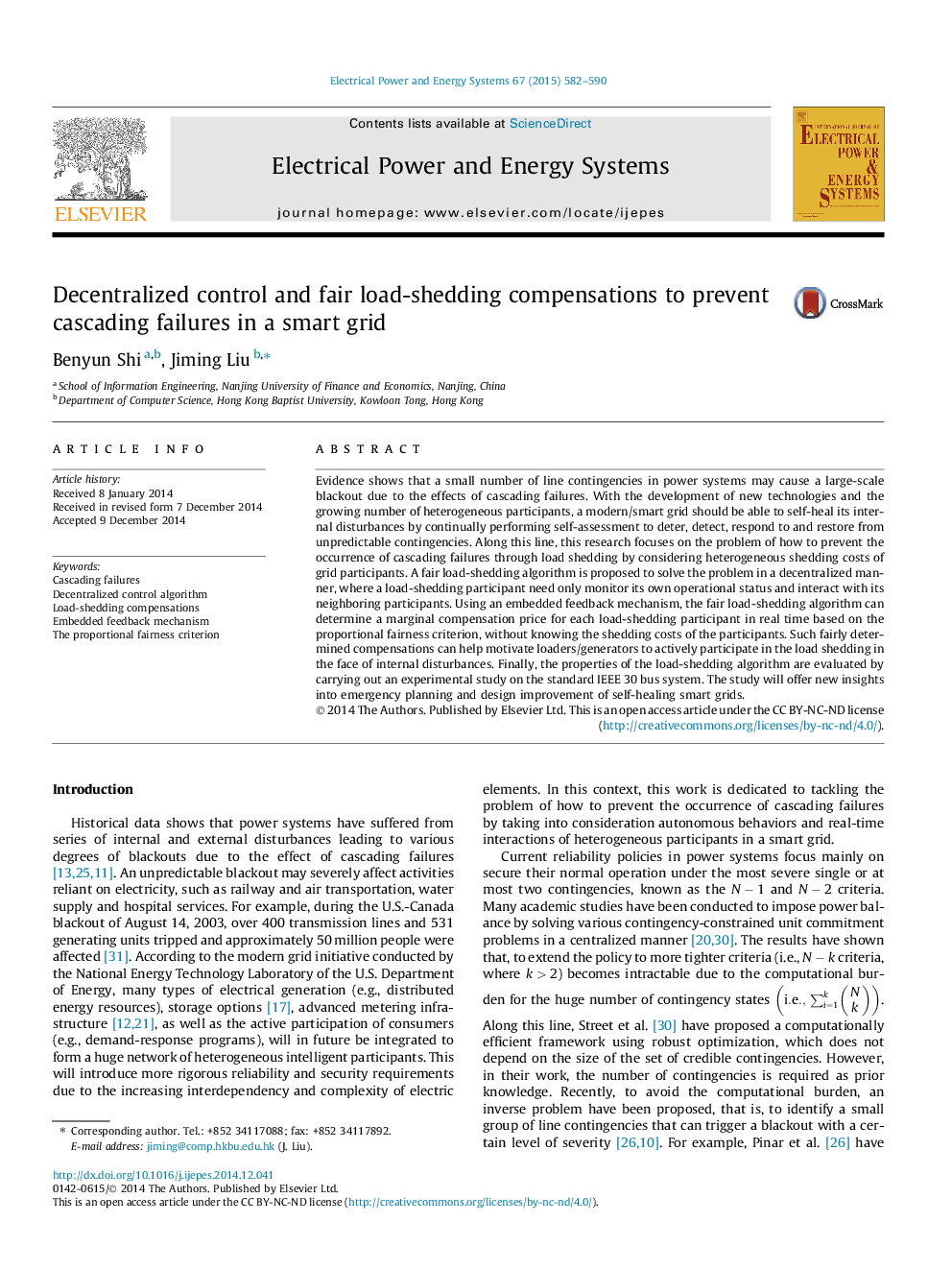| Article ID | Journal | Published Year | Pages | File Type |
|---|---|---|---|---|
| 6859768 | International Journal of Electrical Power & Energy Systems | 2015 | 9 Pages |
Abstract
Evidence shows that a small number of line contingencies in power systems may cause a large-scale blackout due to the effects of cascading failures. With the development of new technologies and the growing number of heterogeneous participants, a modern/smart grid should be able to self-heal its internal disturbances by continually performing self-assessment to deter, detect, respond to and restore from unpredictable contingencies. Along this line, this research focuses on the problem of how to prevent the occurrence of cascading failures through load shedding by considering heterogeneous shedding costs of grid participants. A fair load-shedding algorithm is proposed to solve the problem in a decentralized manner, where a load-shedding participant need only monitor its own operational status and interact with its neighboring participants. Using an embedded feedback mechanism, the fair load-shedding algorithm can determine a marginal compensation price for each load-shedding participant in real time based on the proportional fairness criterion, without knowing the shedding costs of the participants. Such fairly determined compensations can help motivate loaders/generators to actively participate in the load shedding in the face of internal disturbances. Finally, the properties of the load-shedding algorithm are evaluated by carrying out an experimental study on the standard IEEE 30 bus system. The study will offer new insights into emergency planning and design improvement of self-healing smart grids.
Keywords
Related Topics
Physical Sciences and Engineering
Computer Science
Artificial Intelligence
Authors
Benyun Shi, Jiming Liu,
